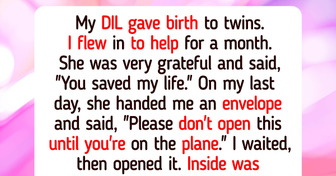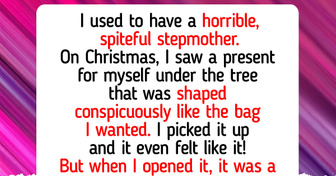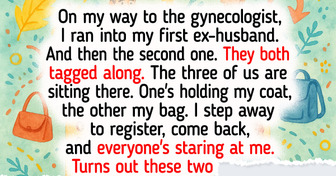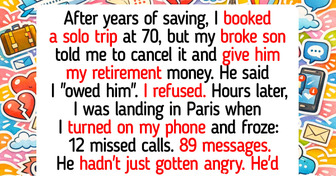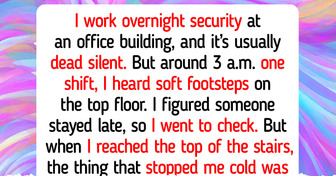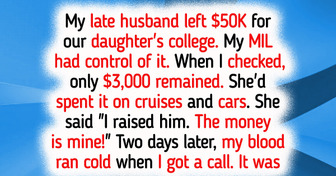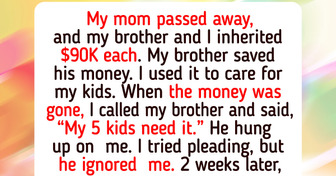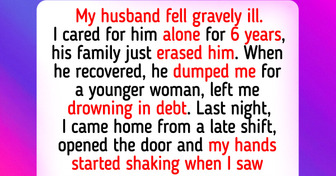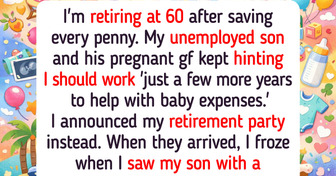10 Hospital Workers Who Prove Kind Heart Is a Powerful Medicine

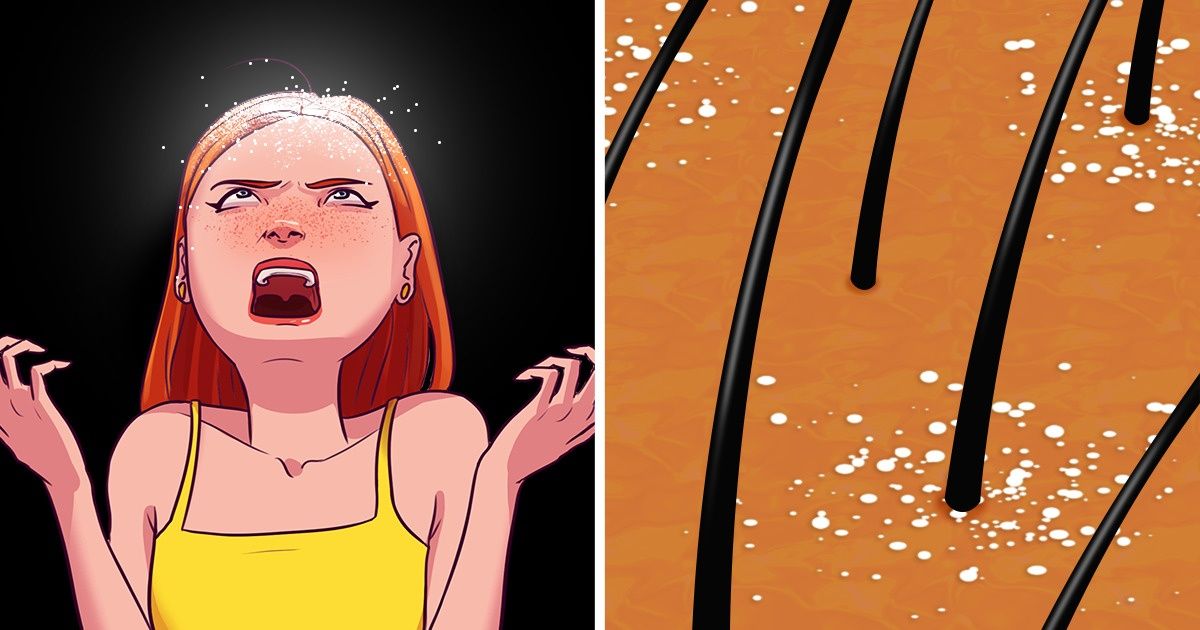
Sometimes when trying to get rid of dandruff, you might be doing something that only makes it worse. For example, you could be washing your hair too often or too rarely. And the way you brush your hair can also make a difference.
We at Bright Side put together a list for you of very common things, that are actually “accomplices” to this hair condition.
When you wash your hair rarely, sebum builds up on your scalp, and together with sweat, it creates the perfect environment for flakes to appear. On the other hand, shampoo should not be used every day either. You will remove all the essential oils from your scalp that it needs to be nourished and strong, and you will dry it out. Specialists recommend shampooing your hair every 2 or 3 days or so, to avoid all these issues.
When you shampoo your hair, you also remove its natural sebum, besides dirt and other residues. That sebum needs to be replenished and this is what conditioners do. They add vitamins and nutrients to your hair, they increase the shininess and volume of your hair, and they also prevent excessive dryness.
Dandruff is caused by an overgrowth of a fungus called malassezia, which also causes acne problems. We all have it on our skin, but some people tend to have more oily scalps than others because this yeast feeds on skin oils. Thus the flakes appear. And although dandruff can’t be cured, it can be controlled.
After rinsing, you might leave some residue on your scalp that could be the perfect environment for the reproduction of flakes, due to this common fungus we all have on our skin. When there is too much dirt and oil secretion on the scalp, malassezia can grow excessively and cause dandruff, or even seborrheic dermatitis, which is severe dandruff.
Brushing your hair improves circulation and removes dead skin cells. By brushing, you also get rid of the dirt from your scalp, so it needs to be done every day to minimize the cause of dandruff. Do it regularly, twice a day, but don’t overdo it. Brushing your hair too often can lead to hair loss. Try to avoid harsh brushes, that can damage your scalp and may cause swelling.
Normal shampoos on the market may lead to irritation of the scalp and flakes, because of the detergents they contain. Finding the right shampoo may take some time, but alternating several types along the way may help you to get rid of the flakes. You can also use a shampoo that is specifically made for dandruff, there are different variants according to the medication they contain.
If waxes, mousses, gels, or hair sprays are not removed properly from your hair, they build up over time, making your hair oily and dirty. Over time, your scalp can become irritated, dry, and itchy. Plus, the heat and the chemicals from these products make your hair weak and can cause it to break easily. You may also develop a sensitivity to certain skincare products, so be careful with what you choose.
When we stress, our immune system has to suffer, and this can encourage the growth of oil and the fungus, malassezia. If you notice that you start having dandruff during a specific period of time, write down what events happened during that time and how they impacted your hair health. Take a long walk to clear your thoughts, do yoga, or take a long, warm bath from time to time. This will help you relax.
It was shown that full-fat dairy products and saturated fats increase inflammation and the production of sebum. To control this, try to eat foods rich in zinc and B vitamins. Bananas have a great deal of these nutrients but don’t forget to include seafood, nuts, avocado, or red meat in your diet because they are great sources of zinc.
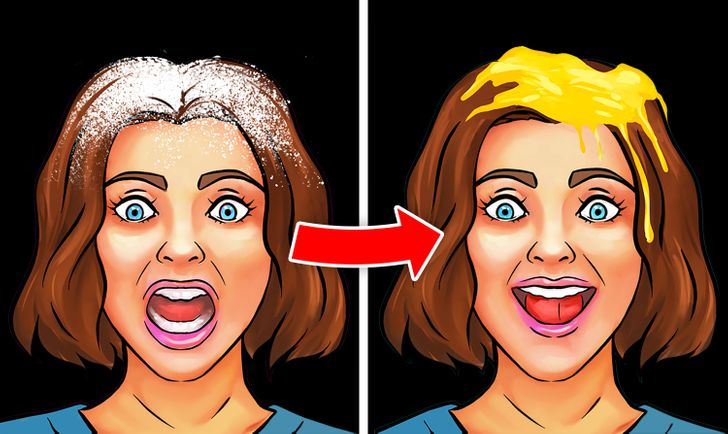
Your scalp is still the same as the other skin on your body, so it should be treated as such. A dry scalp can flake and itch, so apply moisturizer whenever you have the chance. You don’t even have to buy special products for this, just go in the kitchen and grab some eggs.
Separate them in a bowl and put the egg yolks inside. You can add yogurt, lemon, and honey, and put the entire mix on your dry hair. Cover it with a shower cap, then rinse it with shampoo. Egg yolks are full of all the proteins and vitamins that your hair craves. Lemon has anti-microbial properties with its citric acid and yogurt is a natural moisturizer.
Whether you choose a mask with egg yolks or yogurt, don’t forget to gently massage your scalp, and don’t rub it too hard as the skin is very sensitive. You can gently massage it even on dry hair, it helps soothe the scalp and break up flakes. If it is itchy, don’t give in to the urge to scratch it. It will just make it more irritated.
Besides moisturizing and massaging, you have to protect your hair and scalp from sunlight as well, especially if you have short hair. Your skin can get burned and it can easily peel, aggravating your dandruff. You can apply sunscreen directly on the scalp if your hair is short. For medium to long hair, you can find special styling creams that will protect your locks from UV damage.
If the dandruff is severe enough and it becomes unbearably itchy, please consult your doctor right away.
Have you discovered any other natural remedies that can beat dandruff? Share your tips with us as well.


